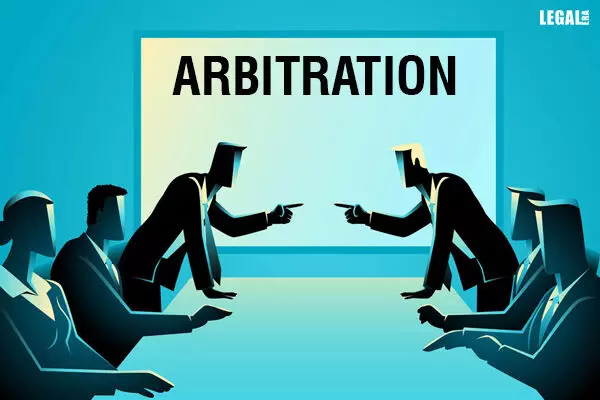- Home
- News
- Articles+
- Aerospace
- Artificial Intelligence
- Agriculture
- Alternate Dispute Resolution
- Arbitration & Mediation
- Banking and Finance
- Bankruptcy
- Book Review
- Bribery & Corruption
- Commercial Litigation
- Competition Law
- Conference Reports
- Consumer Products
- Contract
- Corporate Governance
- Corporate Law
- Covid-19
- Cryptocurrency
- Cybersecurity
- Data Protection
- Defence
- Digital Economy
- E-commerce
- Employment Law
- Energy and Natural Resources
- Entertainment and Sports Law
- Environmental Law
- Environmental, Social, and Governance
- Foreign Direct Investment
- Food and Beverage
- Gaming
- Health Care
- IBC Diaries
- In Focus
- Inclusion & Diversity
- Insurance Law
- Intellectual Property
- International Law
- IP & Tech Era
- Know the Law
- Labour Laws
- Law & Policy and Regulation
- Litigation
- Litigation Funding
- Manufacturing
- Mergers & Acquisitions
- NFTs
- Privacy
- Private Equity
- Project Finance
- Real Estate
- Risk and Compliance
- Student Corner
- Take On Board
- Tax
- Technology Media and Telecom
- Tributes
- Viewpoint
- Zoom In
- Law Firms
- In-House
- Rankings
- E-Magazine
- Legal Era TV
- Events
- Middle East
- Africa
- News
- Articles
- Aerospace
- Artificial Intelligence
- Agriculture
- Alternate Dispute Resolution
- Arbitration & Mediation
- Banking and Finance
- Bankruptcy
- Book Review
- Bribery & Corruption
- Commercial Litigation
- Competition Law
- Conference Reports
- Consumer Products
- Contract
- Corporate Governance
- Corporate Law
- Covid-19
- Cryptocurrency
- Cybersecurity
- Data Protection
- Defence
- Digital Economy
- E-commerce
- Employment Law
- Energy and Natural Resources
- Entertainment and Sports Law
- Environmental Law
- Environmental, Social, and Governance
- Foreign Direct Investment
- Food and Beverage
- Gaming
- Health Care
- IBC Diaries
- In Focus
- Inclusion & Diversity
- Insurance Law
- Intellectual Property
- International Law
- IP & Tech Era
- Know the Law
- Labour Laws
- Law & Policy and Regulation
- Litigation
- Litigation Funding
- Manufacturing
- Mergers & Acquisitions
- NFTs
- Privacy
- Private Equity
- Project Finance
- Real Estate
- Risk and Compliance
- Student Corner
- Take On Board
- Tax
- Technology Media and Telecom
- Tributes
- Viewpoint
- Zoom In
- Law Firms
- In-House
- Rankings
- E-Magazine
- Legal Era TV
- Events
- Middle East
- Africa
Supreme Court: Arbitration Can't Be 'Optional' When Agreement Includes Clause; Parties Must Mutually Agree To Invoke It

Supreme Court: Arbitration Can't Be 'Optional' When Agreement Includes Clause; Parties Must Mutually Agree To Invoke It
The Supreme has ruled that arbitration cannot be considered 'optional,' where parties must mutually agree to invoke the arbitration clause. The Court set aside the Madhya Pradesh High Court's decision, which had held that arbitration could only be initiated if both parties mutually agreed to invoke the arbitration clause.
The Court emphasised that arbitration is not 'optional' in practice, clarifying that the arbitration clause cannot be deemed non-existent or activated only if all parties agree. "In our view, it cannot be said that the arbitration clause is optional in the sense that the arbitration clause is non-existent or that the matter would be referred to arbitration only if all the parties to the dispute agree to refer the dispute to arbitration," the Court stated.
The appeal was heard by a bench comprising Chief Justice Sanjiv Khanna and Justice Sanjay Kumar, challenging the M.P. High Court's refusal to appoint an arbitrator based on the view that invoking the arbitration clause was 'optional' and would only occur if both parties agreed to arbitration.
Upon reviewing the arbitration clause in the agreement, the Court concluded that it should not be narrowly interpreted. The Court pointed out that while the appointment of an arbitrator may require mutual consent, the invocation of the arbitration clause itself was not optional. The clause's purpose was to resolve disputes, and even if the parties failed to agree on an arbitrator, the court could appoint one under Section 11(6) of the Arbitration and Conciliation Act, 1996.
The Court further explained that the reliance on the second part of the arbitration clause, which suggested that arbitration was optional and that the arbitrator would be appointed by mutual consent, should not be read in isolation. The Court emphasised that the arbitration clause could be invoked by an aggrieved party seeking recourse to arbitration. Once invoked, the arbitrator could be appointed with mutual consent. However, if the parties could not agree on an arbitrator, the court could intervene and appoint the arbitral tribunal.
The Court observed that arbitration clauses should be interpreted pragmatically and in the context of the entire agreement. As a result, the appeal was allowed, and the court directed the appointment of an arbitrator.



